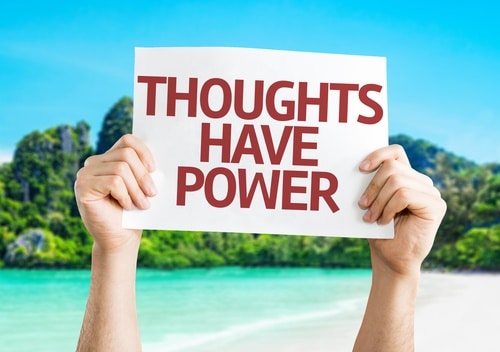Don’t believe everything you think.
My reaction was, “Say what??” Then I stepped back and considered the statement. The average person thinks between 50,000 and 70,000 thoughts per day; they range from the mundane (Pick up bread on the way home.) to significant (I love you.) to the self-destructive (I’m not good enough). Our thoughts might seem logical in the moment, but when we examine long patterns of brain activity, it’s clear that thoughts can be random, unstable, even illogical and contradictory. Yet humans form personal identities around what we think. The result is often a scattered sense of self.
The good news is you are not your thoughts. While we have great capacity to think, it is incredibly susceptible to error, bias, false assumptions, misinformation and ego.
Unhealthy self-talk has the ability to paralyze – limiting our perspective and options:
- We worry about the future: what might happen
- We worry about the past: what we should have said or done differently
- We worry about here and now: what others think of us, missing a deadline
When things don’t go as planned, most of the stories we tell ourselves are negative. We rarely start by giving ourselves the benefit of the doubt.I once heard a young girl describe herself as stupid for the low grades she got in math. “I am so stupid, I can’t get it right. I hate math and I hate my parents for forcing me to go to school!”
When we tell ourselves I can’t, it’s too hard, I’m too stupid, too ugly, everyone else is smarter, stronger and more capable than I am, eventually we start acting on this belief.
If you find yourself falling into this negative pattern, change your behavior, start seeing yourself already in the place to want to be; feel all the emotions you will feel while getting the results you want. It all begins inside you.
Create a happy, healthier mind. Act enthusiastic and you will be enthusiastic; act happy and you will be happy. Build your confidence and sense of self-worth by doing the things you thought you could not do.
Socha – an open question why we have such public confidence, and such private doubts. It’s the kind of basic human vulnerability that we’d all find familiar, but is still somehow surprising when we notice it in others.


